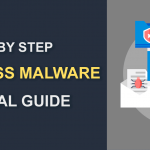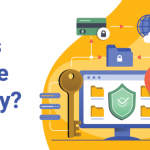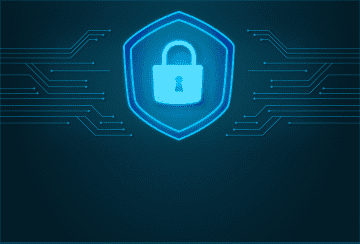Scam Website Detector – How to Spot a Fake Fraudulent Website?
November 14, 2022 | By Admin

Scam Website Detector - Fake Websites Checker
You might have heard of a Scam Website Detector that helps detect fake and fraudulent websites. If you haven't used these scam website checkers, you should use one as early as possible. It is vital to know how to spot a fake, fraudulent, or scam websites, to stay protected.
The Internet is a global marketplace where businesses across the globe reach customers in almost any part of the world. Sadly, it is also a place where cybercriminals lure unwary users into phishing scams and make them download malware onto their computers.
Cybercriminals are good at imparting a false sense of trust. It is commonly known as "social engineering," and it is the fundamental trait in phishing emails that link to fake and fraudulent websites. Of late, Cybersecurity companies maintain the fake websites list which keeps increasing day after day. Business owners have to stay vigilant by making use of Scam Website Detector.
Have you heard of a scam website checker?
Well, if not, you should surf the internet and become acquainted with the tool and use it as frequently as possible.
With the use of the internet, the world is undeniably more connected than ever - connecting people to other people, products, services, and brands on a global scale. Unfortunately, cybercriminals are connected to those same channels.
How do Fraud Websites work?
In most cases of internet fraud, scammers or hackers pretend to be legitimate persons or organizations. They create seemingly legitimate websites and try to trick you into revealing your personal or financial information, such as internet banking details, credit card numbers, and passwords.
Creating scam websites is one of the most common methods used by cybercriminals to lure unwary users. In some cases, scammers change their tactics to avoid being caught and make the recipient believe the scam is real.
Designing these illegitimate sites to deceive users by appearing legitimate is key in luring unwary users. In many cases, scammers continuously change their tactics to avoid being caught and continue to seem legitimate. Fake a scam once the motive is accomplished you won't hear from them again.
If you fall for the traps set by these fake websites and click on the links provided, it may launch a Trojan that installs a keystroke logger or spyware on your computer. Keylogger malware can capture everything you type, including passwords, while spyware records all of your internet activities.
The link that you click on may also redirect you to a fake bank website that asks you to enter your personal information. The fake webpage may look identical to the bank's real homepage since the scammer would have copied files from the actual bank website. However, when you try to log into your bank account, you may be prompted for information that the real bank site never would prompt you for.
Is this Site a Scam? - How to identify Fraudulent Websites? - Website Scam Checker
You can avoid fraudulent websites by looking for common signs that indicate the site you are visiting is fraudulent. Here are some of those signs: Here are some of the signs to identify fraudulent websites:
1. Incorrect URL
In many phishing scams, scammers use modified URLs of the actual web pages. So, users must be vigilant and double-check the URL of the webpage that they intend to visit. Look for alterations in the URL, such as hyphens or any other added characters.
2. No Postal Address
If you are visiting an e-commerce webpage, be sure to check the postal address on the website. Real businesses, selling real products, will display a physical contact address on their websites. Be cautious of any site that doesn't list the company's physical address or contact information.
You can also search Google or use Google maps to find the exact location of the company stated on that website. If the contact address provided on the website doesn't match the company's exact location, then it may be a fake or fraudulent website.
Of course, companies like Google, Amazon, and many more don't list contact information or purposely hide them. But these companies have already established a name for themselves, so it's rare that a customer would have any doubts about these brands.
3. Asks For Banking Information
If you are visiting a real bank website, it would never ask for your debit card numbers and PINs via email. Be wary of any email or website that asks for such sensitive information to log in.
4. Contains Misspelled Words
Real companies/brands have a specialized team to check the grammar and accuracy of emails and websites. If the site that you visit has poor grammar or a misspelling/misuse of the company name, be cautious and look for other clues to confirm your suspicions. It is advisable to avoid such websites.
Apart from the signs mentioned above, be sure to look for padlock and HTTP in the address bar of your browser. If you see HTTPS and padlock, the connection is encrypted and secure. With those things in place, you can be confident that the site you are visiting is safe and that your information is safe and secure.
Fake Website Checker
A simple precaution is to run a scam website checker at regular intervals - Comodo's SiteInspector is an effective fake websites detector that will check all sorts of web scams. It is a free tool that provides malware scanning and blacklist monitoring for any website. It's as simple as entering the URL and in minutes you will have a website status report letting you know whether that site is safe to visit or not. Many website owners have found this tool as a resource to check their website for any malware and then they can clean their site through the Comodo cWatch Web malware removal service.
Related Resource

 (38 votes, average: 4.45 out of 5, rated)
(38 votes, average: 4.45 out of 5, rated)










